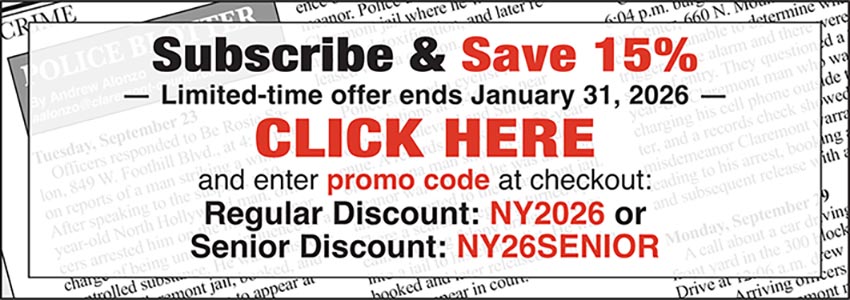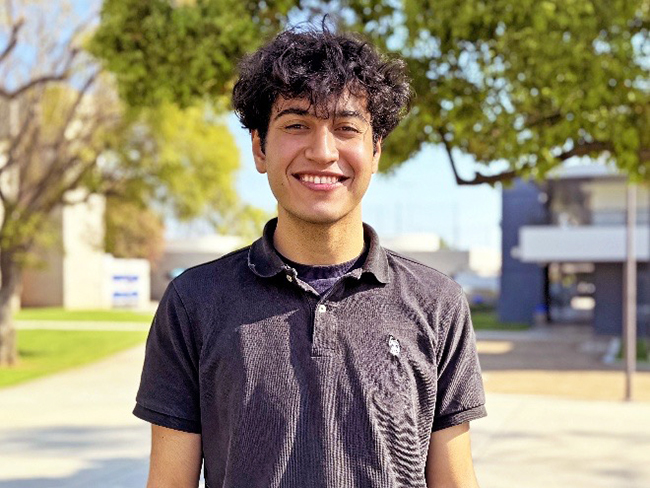A surprise from afar—something to celebrate here
by John Pixley
I didn’t want the firemen to come. Really, I didn’t. It was pretty impressive that they did, though, complete with blaring siren and an array of first aid equipment. It was pretty impressive that they arrived so quickly. And it was even more impressive that they knew where I was, more or less, and that they were able to find me.
Something to remember when the fire trucks and police cars start off the Fourth of July parade tomorrow, with their sirens chirping and lights flashing. One more thing to cheer on and applaud.
But I didn’t need the siren and first aid. I didn’t need the big scene. Really. I just wanted one of my attendants to come and pick me up with my wheelchair-accessible van.
Actually, I didn’t need a ride, and one of my attendants was with me.
I had my attendant with me that Saturday morning a few weeks ago, and I had gone out with him and was testing a new device that I had recently gotten. It didn’t work that time as I wanted it to, but, boy, it certainly worked.
I had gotten weary of going out in my wheelchair on my own as I can and often do safely and easily. It’s one of the reasons I love living in Claremont. But I’m always worried about not knowing what kind of help I would get if my motorized wheelchair broke down. I was more and more concerned about getting someone to stop and assist me or make a phone call. Even in a friendly place like Claremont, people are busy or have some trepidation. And I never knew what kind of help I would end up with.
I once found myself laying on my back in the back of a police car on the way to my house, being lectured about keeping my chair battery charged (I charge the battery every night, thanks, but one of the motors had conked out). I didn’t want to know how they got the big, heavy chair into the trunk, and don’t ask me how the chair wasn’t damaged when it was taken out at my house. (I got an apology the next day.)
Another time, I got a ride in a wheelchair-accessible taxi. It was short drive from the Village to my house but with the charge clicking up what must have been every few feet. The driver wasn’t happy when I had him push me in my heavy dead chair up the ramp and into my house, and he was even less so when it turned out I didn’t have enough cash on me for the fare. (I wasn’t planning on needing an expensive ride home.)
I just wanted a reliable way to contact one of my attendants and get a ride home in my van. It’s upsetting enough when my wheelchair breaks down; I didn’t need the extra worry and drama. Friends of mine shared the concern.
The tricky part was that I am not able to use a phone. Plus my speech is difficult to understand. How could I contact an attendant without having to rely on some patient person to come by and try to assist me?
After some research online, a company with a device called Mobile Help looked like it might be the answer. It is like a Life Alert device, except that it has a GPS. This means that when I’m out and I press the button, I will be in contact with a person who will not only know who I am but also right where I am.
That was the theory, and it sounded good.
It was important to try out the device once I got it, to see if it was as good as it sounded and if it would work when I really needed it. I went out several times and gave it a dry run, with someone I knew with me to explain that it was a test, not an emergency, or to help out if there was a problem or if questions needed to be asked. The Saturday morning a few weeks ago was the third time out.
The first time was more or less a disaster, with the woman repeatedly saying “I can’t understand you” and leaving my friend and I to wonder if the device would work at all for me (this was during a free trial period ). It turned out that the woman in Boca Raton—that’s where Mobile Help is based—didn’t see the note about my speech.
During the second dry run, all four of my contacts were called—and I didn’t find this out until later. I had wanted just one specific attendant to be called, especially since two of my attendants live quite far. Later, my attendants and I decided it isn’t a bad thing if they are all contacted (they can call each other to make sure one is helping me).
For the third run, I decided to test the GPS and went with an attendant to a small garden on the Pomona College campus, somewhere that didn’t really have an address. My attendant and I were quite impressed when the woman who responded knew right where I was. The voice said, “Off Fourth Street” when I pressed the button. She asked if I needed assistance, and I said yes. I then didn’t hear from her and, a few minutes later, just as my attendant and I were wondering what was going on, we heard the siren.
My attendant and I were both really embarrassed but also really impressed. My attendant went out of the garden to tell the firemen exactly where I was, but I suspect they would have located me before too long. The firemen were very understanding and a bit amused when we told them that we were running a test—hey, they passed—although they did make sure that I was okay.
Clearly, the Mobile Help device was a work in progress, and it still is, but at least I know at the very least that I can get some kind of help when I really need it. My attendant that day lives in the West LA, and he remarked that getting help quickly, literally in minutes, is one of the many benefits of living in a small town like Claremont.
I imagine there are many different benefits we each see in living in this small town, even when they are not what we had in mind or come from unexpected places. We will celebrate all of them tomorrow as they parade before us with flying colors and sound lifted up.










0 Comments